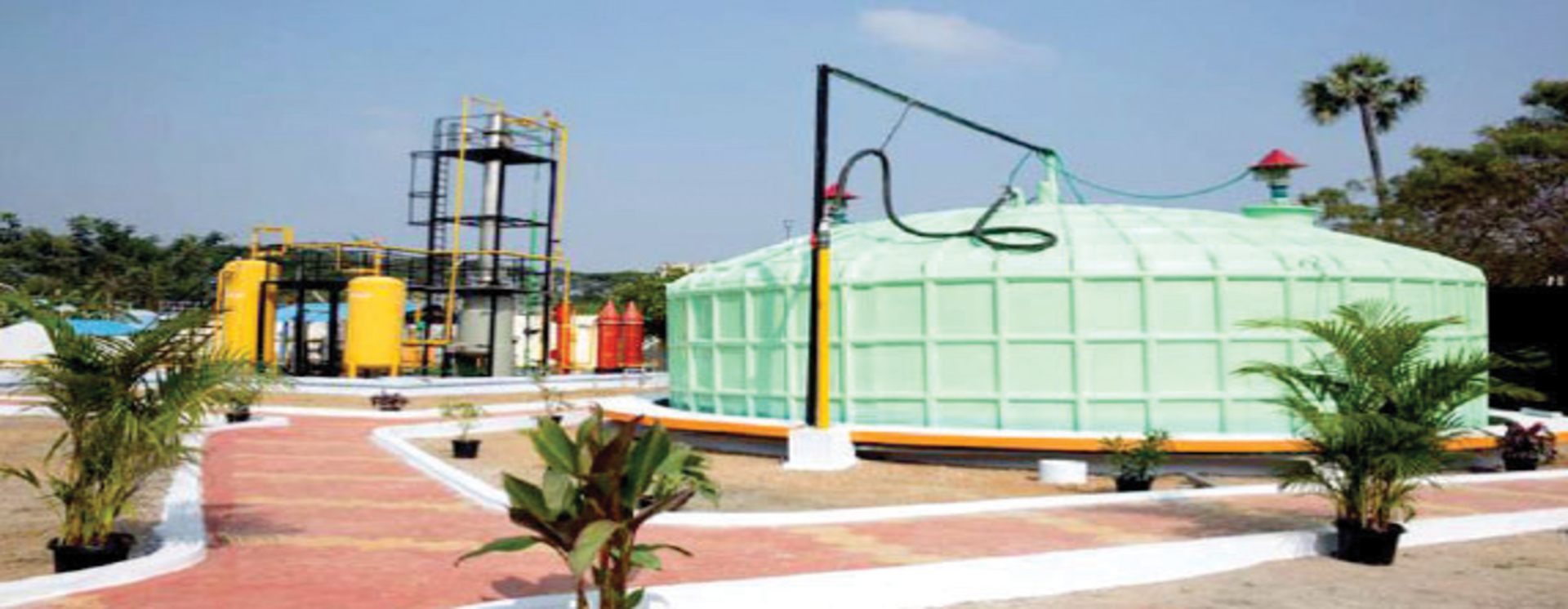BIOGAS And BIOCNG

Indiana Sucrotech (Pune) Pvt Ltd. is engaged in delivering biogas plants on turnkey basis. Distillery spent wash is processed further to produce biogas. Biodigesters are the main key equipment for biogas production.Biogas contains 55-65 per cent methane with 35-45 per cent carbon dioxide.
Biogas is a mixture of different gases produced by the breakdown of agricultural waste, manure, municipal waste, plant material, sewage, green waste, or food waste, in the absence of oxygen.When this mixture is further purified and processed, it is called bio-compressed natural gas (bio-CNG). It is similar to natural gas in terms of its composition and properties, and is a cleaner alternative to fuels such as petrol and diesel.
Indiana Sucrotech (Pune) Pvt Ltd. is contributing for BIO-CNG production by providing the turnkey solution plants for BIO-CNG production using biogas as a raw material from Sugar & Ethanol distillery plants.
Bio-CNG is a renewable fuel obtained by purifying biogas – in contrast to CNG, a non-renewable source of energy. Biogas is produced when microbes break down organic matter like food, crop residue, waste water, etc.
Bio-CNG contains about 92-98 per cent methane and only 2-8 per cent carbondioxide, while biogas contains 55-65 percent methane with 35-45percent carbon dioxide.The calorific value of Bio-CNG is about 52,000 kilojoules (kJ) per kg,which is nearly 167 per cent higher than that of biogas at 19,500 kJ per kg.The high methane content and calorific value combined with the low quantity of moisture, hydrogen sulphide and impurities makes bio-CNG an ideal fuel for automobiles and power generation. The low emission levels of bio-CNG also make it a more environment-friendly fuel than biogas.
In India, bio-CNG has immense scope, specifically as a replacement for the more widely used CNG and liquefied petroleum gas (LPG). Besides, bio-CNG can cater to diverse segments of the market with applications in commercial (hotels, canteens, bakeries, and resorts), industrial (glass and ceramic, metal processes, cement, and textiles) and automotive (public transport and private vehicles) processes.
Apart from replacing CNG and LPG, bio-CNG can be used in lieu of biogas, which has an estimated market potential of 1,281 MW as per 2018.
For instance, distilleries, and sugar and starch factories meet about 75 per cent of their energy needs through biogas, and thus could be the potential consumers of bio-CNG as well Other industries like milk processing, pulp and paper, and slaughterhouses could also utilise bio-CNG to meet their energy needs.
